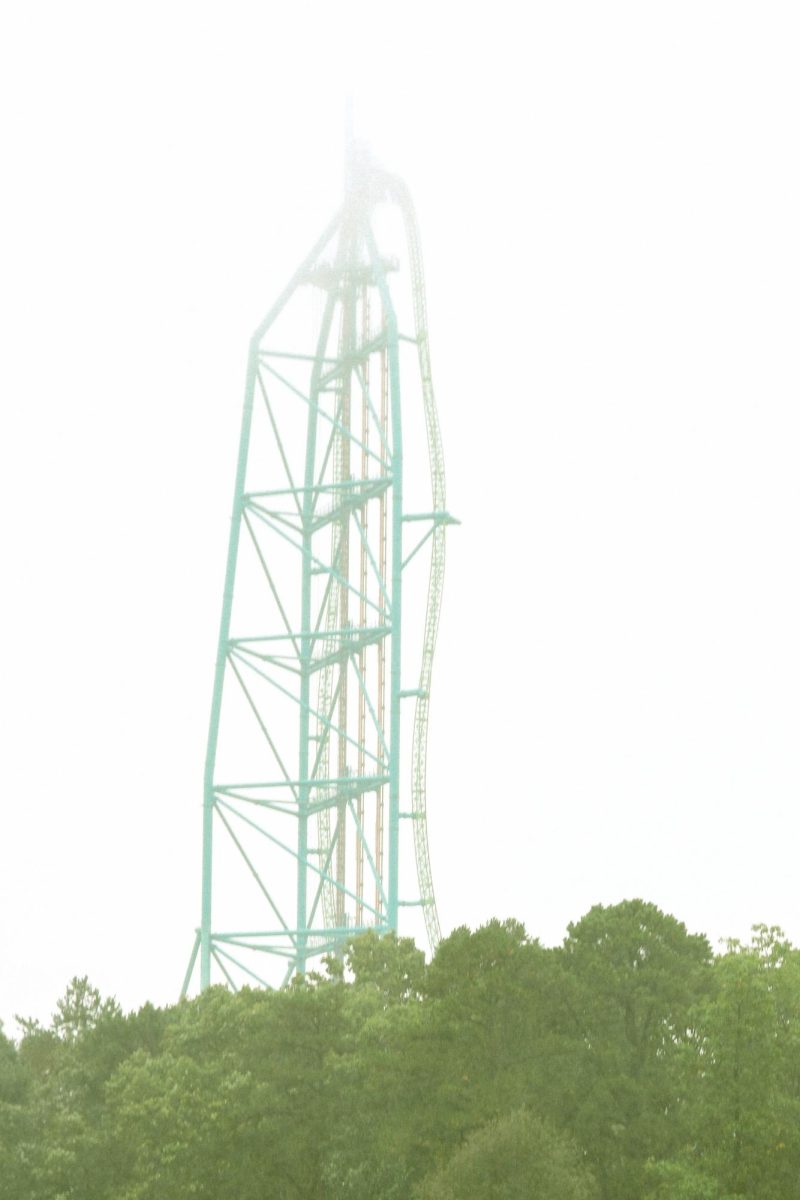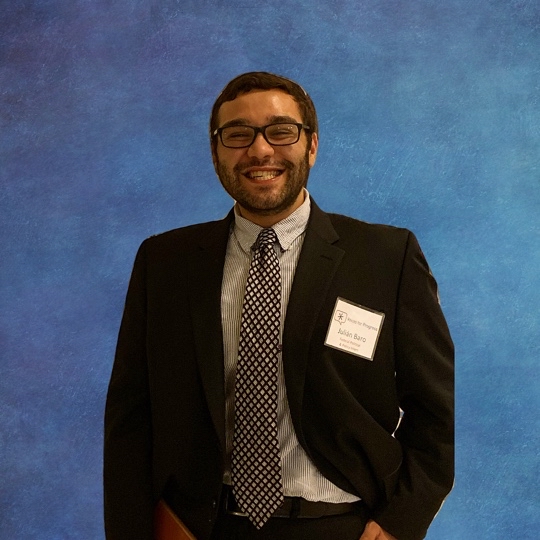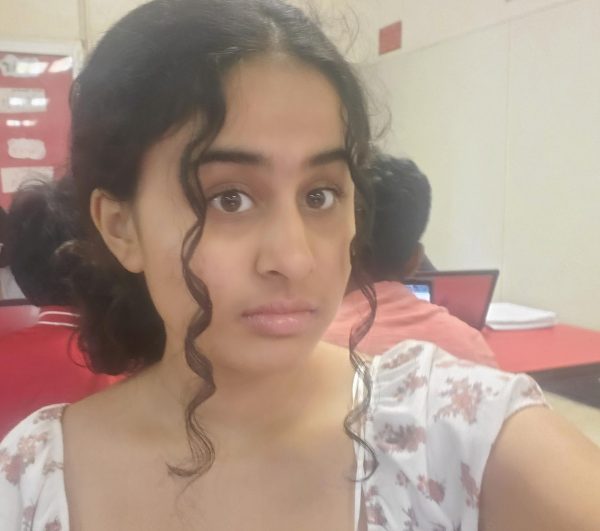Over the past few decades, diversity has been an increasingly important issue, especially in the workplace. Many people still find it difficult to assimilate into parts of society that they feel exclude them. In order to help change this problem, one EHS alum has been working to change societal norms in the workplace. Pursuing a Master’s degree in Public Administration & Policy at American University, Julian Baro ‘16 is an avid proponent of the promotion of diversity in the workplace. One of his main goals is to help marginalized communities, such as people of color and LGBTQ+ members. He has been working at the Society for Research and Childhood Development since July 19, 2023, and he will be going to Panama in 2024 to attend an anti-racist developmental science symposium for the organization. Ultimately, Baro encourages people to “take their opinion to the table and give people the awareness that they care about.”
What were some of your favorite classes or activities at EHS? What were some of your favorite experiences at American University?
My favorite class at EHS had to have been APUSH, and it was with Ms. Rubiano. That woman really stole my heart—she is so sweet—and she taught me things that I never thought I would remember. As a kid, I had severe ADHD and I had depression that I never got diagnosed with until I was in college, so for her to get me to sit down and memorize every single president was insane. She is quite literally a queen at her craft, and she made me care so much about the US government, and I hated the government. I thought we could just use Socratic Seminars because all my English teachers—Mrs. Frey, Mrs. Corsun, Mr. McCaffery—said “if you’re not having a Socratic Seminar, you’re not having a debate.” So, I took it to heart and did things like Mock Trial and Model UN. For what it’s worth, I loved EHS for all its worth, and I love those memories because they’re very, very happy. EHS definitely taught me how to be myself, in a sense. I went through it not thinking I’d ever be able to come out, but I eventually was able to. For American University, I do think moving to DC was one of the best decisions I’ve ever made. I still live in the DC area, and I don’t want to move. I love AU because AU is where I met some of my “forever friends.” I’ve known some of them for about eight and a half years. A lot of them were friends from classes, my fraternities, and volunteering—I was able to raise a lot of money for AU as well.
What was your experience working with suicide prevention?
I volunteered for the American Foundation for Suicide Prevention and Theatre Awareness for Suicide Prevention. A lot of my friends from theatre went to college and never came back because they committed suicide. My younger brother died during the pandemic; he basically struggled a lot with mental health stuff like being stuck in isolation for months at a time. He couldn’t really handle that. So, I do the National Walk at the National Mall for the American Foundation for Suicide Prevention every year and raise a few hundred dollars. Teachers at EHS were an integral part of helping my younger brother with things he was going through silently at the time, and they also helped get me to where I am today.
You participated in many theater/musical-related activities in EHS, which some may think contradicts your degree at AU. What are some ways these activities helped you with your future career that a classroom could not?
Growing up, I did theater because I loved improvisation. I was really, really good at the improv troupe at Edison High. I went to all the regional competitions; my friend Rachel and placed third the first time we went. Later, we would both win first place. It was a really fun time for me because I got to explore who I was as a person and learn more about myself & how I present to others. So, I try to channel those emotions into my work and what I like to do. I’m doing my master’s in public policy and public administration because I think that’s where my expertise lies, and there are a lot of aspects of public policy that people don’t really think about because they think it’s just about the government.
Who are some role models in your life that helped encourage this interest (in EHS and outside)?
One of the school counselors who was a social worker–Mrs. Wertz. She’s one of my favorite people on the planet; she helped my brother, Mario, through his struggles, making sure he was semi-stable while I was in college. She kind of “held down the fort” while he was still at EHS. About a month ago, she raised $6000 for suicide prevention, and nobody in her immediate family has been/is suicidal. The money went towards organizations that are very important to me and the causes that I support. She’s always been a guiding light in my life: I don’t want to be a social worker, but I would love to be Mrs. Wertz. Another one would be Señora Fedowitz from the Spanish department. She is one of the most articulate, charismatic, and energetic teachers I’ve ever had. She turned me into a very docile student, which was hard to do for someone like me. I wasn’t the type to immediately trust a teacher, but Fedowitz kind of “softened me.” She turned me into a really sweet kid who wanted to go to class, and she made me want to learn more about Spanish even though I was already a native speaker.
Inclusivity is a big part of your platform, so were there any specific instances throughout high school or college where you thought that you or any other students were purposefully excluded? How did this impact the nonprofits you chose?
I was at the BLM protest, and that was one of the most tragic times in my life. Not only did I get berated with pepper spray, but I was also shot with rubber bullets all over my body. I know what it takes to get out into the street and have your voice be heard because people will not listen. I sat through protests as they read out the names of thousands and thousands of children who were slaughtered. I’ve gotten really good at going out and voicing my opinion about things that need to be changed. When I got to the Bar Association, I did a whole rebrand in order to include more members of the LGBTQ+ community. Many people don’t understand the point; they’ll ask questions like “why do you need the plus (+)?” Overall, I hope to improve problems with a lack of inclusivity such as these by fixing as much as I can.
What are some other types of nonprofits that you look forward to working with in the future? Do you think you may found your own nonprofit in the future?
I think that founding a nonprofit is a very just cause if you have reason, but I don’t know if I have enough evidence behind my reasoning in order to start a nonprofit. I don’t know if I would be able to impact a large enough community. I feel like not enough people are interested in these causes—in other words, there isn’t enough “gumption.” I chose most of my other organizations based on their missions because I wanted to be able to justify working for them. But if I couldn’t justify it, I would turn down the opportunity.
Know an Eagle out of the nest who has a story to tell? Email contact information to [email protected]

















































































